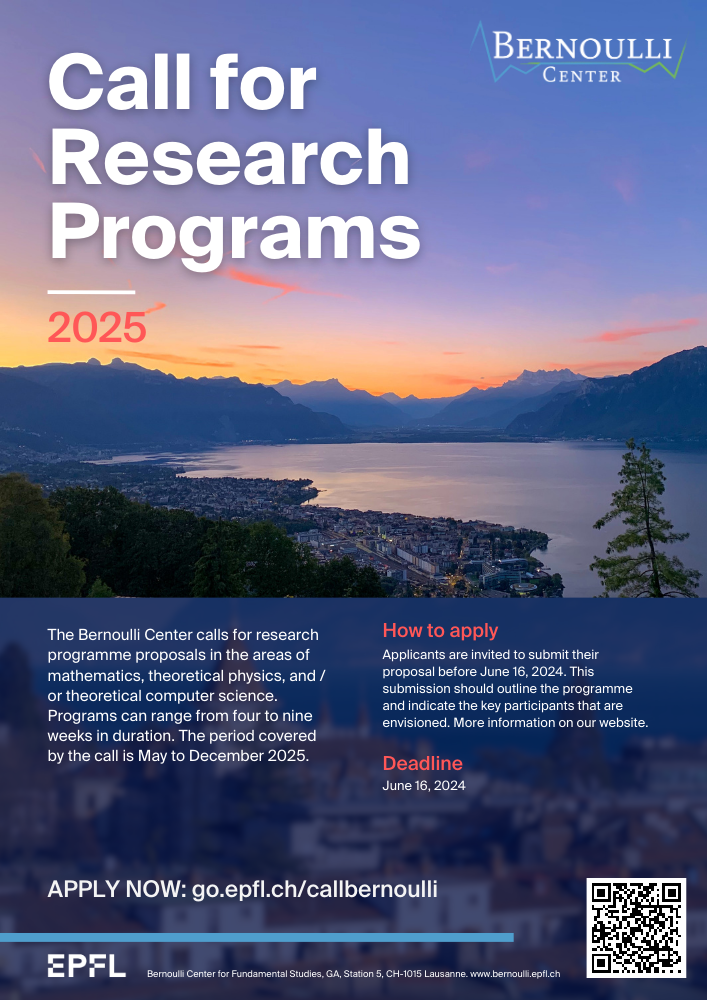QFT in AdS: A novel window into strong coupling dynamics
This workshop is part of the Bernoulli programme at EPFL, to be held from 16 to 27 February 2026.
Anti-de Sitter (AdS) space provides a unique arena for quantum field theory and gravity. Beyond its role in the AdS/CFT correspondence: AdS acts as an “infinite volume box,” regulating infrared effects while retaining rich dynamics such as phase transitions. Its boundary structure, where the isometry group becomes the conformal group, allows strongly coupled QFTs to be probed with conformal bootstrap techniques, even away from criticality. In the flat-space limit, AdS correlators connect to S-matrix physics, and conformal defects can be naturally described as boundary conditions in AdS. This convergence makes AdS a natural hub for modern non-perturbative methods, linking insights from diverse communities.


